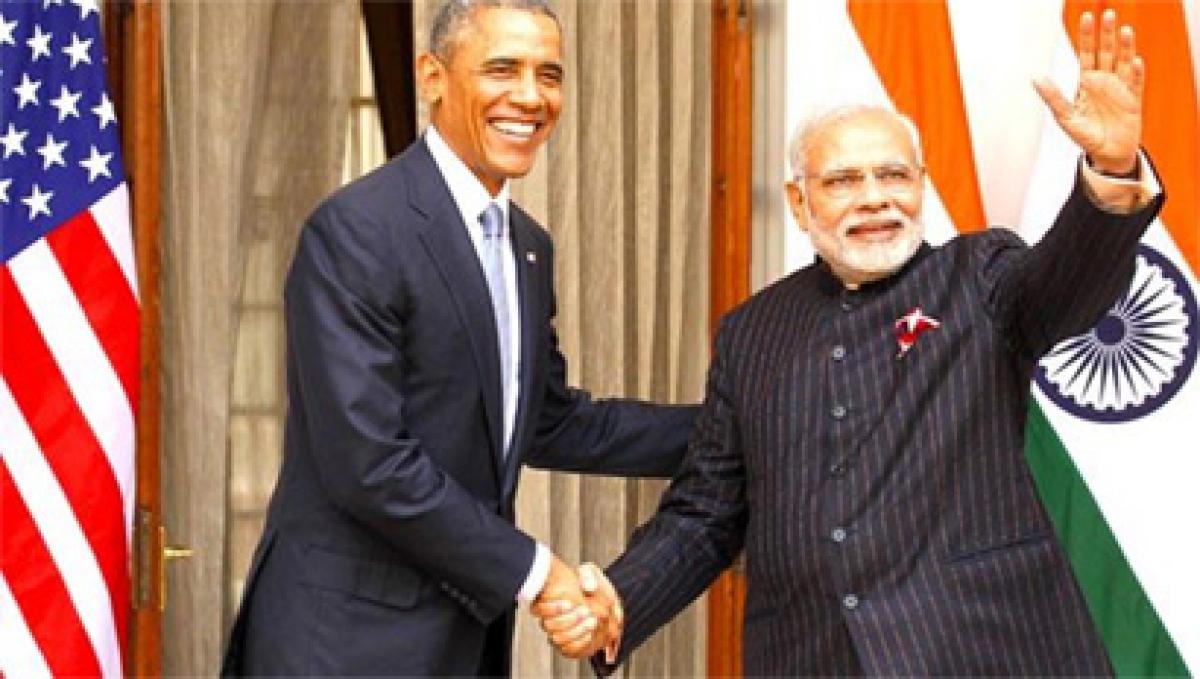Live
- Over 7,600 Syrians return from Turkiye in five days after Assad's downfall: minister
- Delhi BJP leaders stay overnight in 1,194 slum clusters
- Keerthy Suresh and Anthony Thattil Tie the Knot in a Christian Ceremony
- AAP, BJP making false promises to slum dwellers for votes: Delhi Congress
- 'Vere Level Office' Review: A Refreshing Take on Corporate Life with Humor and Heart
- Libya's oil company declares force majeure at key refinery following clashes
- Illegal Rohingyas: BJP seeks Assembly session to implement NRC in Delhi
- Philippines orders full evacuation amid possible volcanic re-eruption
- Government Prioritizes Welfare of the Poor, says Dola Sri Bala Veeranjaneyaswamy
- Two Russian oil tankers with 29 on board damaged due to bad weather
Just In

India\'s ratification of an international convention on nuclear energy accident liability has removed a major irritant in India-US relations and would help them unleash the full potential of the landmark India-US nuclear deal.
India's ratification of an international convention on nuclear energy accident liability has removed a major irritant in India-US relations and would help them unleash the full potential of the landmark India-US nuclear deal.
The US was quick to welcome the development removing the last hurdle in the way of US firms to build nuclear plants in India and generate an estimated $100 billion in business seven years after the deal was signed with much fanfare.
A deal between Toshiba Corp's Westinghouse Electric to build six nuclear reactors in Gujarat may well be signed in time for a possible visit by Prime
Minister Narendra Modi to Washington to attend the March 31- April 1 nuclear security summit.
Westinghouse is reported to be negotiating with the state-run operator Nuclear Power Corp of India Ltd (NPCIL) with the hope of making a "commercially significant announcement" during Modi's expected US visit and sign a final contract later in the year.
Another US company GE Hitachi is said to be in talks about the techno-commercial viability of its reactors at sites in Andhra Pradesh.
American firms had been allocated sites in the two states under the nuclear deal signed in October 2008 after the then Indian Prime Minister Manmohan Singh staked his government over it.
However, the two US companies were reluctant to go ahead in the face of India's tough 2010 nuclear liability law that made the suppliers of nuclear plants liable for damage in the event of an accident.
Though the deal otherwise transformed India-US relations, Washington was sore that while it had done the heavy lifting to get India a waiver from the
48-nation Nuclear Supplier Group to do nuclear business with other countries, it had been left high and dry.
Finally, it was during President Barack Obama's historic visit to New Delhi last year as chief guest at India's Republic Day that he and Modi reached what was described as a "breakthrough understanding" to allay US concerns about industry liability.
The understanding sought to resolve India's concerns about inspections and US concerns about liability for a nuclear accident with Washington saying India's laws and regulations do not meet international standards.
On the first, with India agreeing on 'administrative arrangements' providing
for tighter checks by the International Atomic Energy Agency, Washington dropped its insistence on 'flagging', or tracking, fuel consignments.
On the issue of liability, the understanding endorsed the principle of strict liability, which 'channels' costs arising from a nuclear accident to the plant operator and requires it to pay no-fault compensation.
To address another issue posed by India's 2010 nuclear liability law that allows a plant operator to seek secondary recourse against a supplier, an India Nuclear Insurance Pool (INIP) with a liability cap of 15 billion rupees ($222 million) was launched in June 2015.
Now with India agreeing to ratify the IAEA Convention on Supplementary Compensation for Nuclear Damage (CSC), it would also gain access to international funds with risk shared according to how many nuclear plants a country has.
The Feb 4 submission of the instrument of ratification to IAEA in Vienna, according to Indian officials "is the conclusive step in the addressing of issues related to civil nuclear liability in India."
State Department spokesman John Kirby Friday acknowledged that Indian membership in the CSC will "facilitate participation by companies from the United States in the construction of nuclear reactors in India."
And as he noted it will also reduce "India's reliance on carbon-intensive sources, that will benefit the environment, and will offer India greater energy security for its large and growing economy." And that makes it a big deal.

© 2024 Hyderabad Media House Limited/The Hans India. All rights reserved. Powered by hocalwire.com







